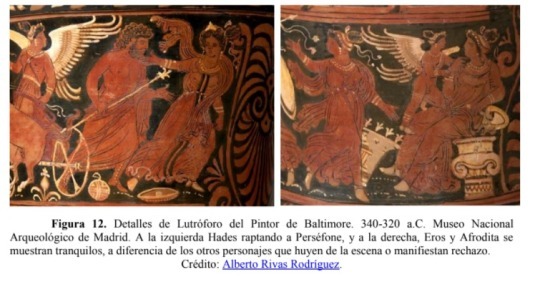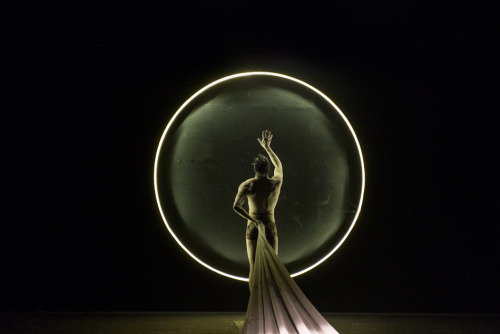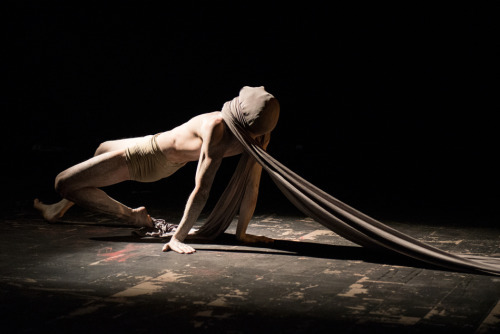Rachel Alexander's Blog, page 330
April 30, 2018
How do we know Persephone loved Hades ? In the Hymn to Demeter I didn’t find anything that said she did...
Short answer: In the Hymn to Demeter you won’t find a
literal statement of Persephone saying “I love Hades”. But we can infer their happy and loving union from studying all sources together along with Ancient Greek traditions.
Covered previously: here and here.
Long answer:
First, we must understand that our modern
notion of love is not equal to the Ancient Greek concept of love. Concept of
love in Greek fiction (literature-poetry) was not bilateral (given-felt by both
parties), at least not since the beginning. Also, there was no difference
between romantic and sexual attraction. Eros/Aphrodite power involved both
concepts. There were other concepts or words related to love, like agape or philia, but they can be applied to family or love (not our
romantic-sexual duality).
Most of the time Eros’ power was an
uncontrollable and overwhelming force that dominated the
“person-in-love” and forced them to do things they wouldn’t
rationally do. The image is this: There is the person-in-love (Person A) and
their “object of desire” (Person B). Eros “attacks” Person
A who will pursuit Person’s love reciprocation B with either happy or tragic
results (Tragic one: see Apollo and Daphne myth).
In all myths we always see that Hades is the “active
subject” pursuing Persephone, who should accept or reject him. We never see
Persephone actively looking for Hades love.
Following this logic of “ancient Greek love”, the
only thing Persephone could do was to accept Hades’ love or reject it.
And here comes the scene of the pomegranate as
a symbol of acceptance. We must remember a lot of things like: i) pomegranate is the fruit of
marriage, ii) there were wedding rites involved feeding the bride with a fruit,
iii) Persephone was considered a powerful goddess, and a goddess of fertility-renewal-hope-death-marriage, iv) the feeding of the pomegranate
comes immediately after Hades promise of honors to Persephone, v) Hades also
promises to be a suitable husband for her, vi) Ancient Greek women were asked to hide their
sexual desires even for their husbands, vii) Apples or round fruits were used as love spells, viii) Greek Gods do not eat food, they don’t have to and they are never shown doing it. Considering those things, it’s more
than likely that Persephone is not “tricked” but agrees to eat the pomegranate to become the Queen
of the underworld and Hades wife.
Some scholars have done great analysis on this,
comparing it to Ancient Greek weddings bride’s acceptance of groom’s love, like Kirk Ormand or Ruby Blondell.
Arguments against Persephone eating willingly:
i) “But Persephone herself says she was forced”; most of scholars agree that
Persephone is lying to her mother either to protect her from disappointment or
due the social restrictions Ancient Greek women had to express their sexual
desires. The omniscient narrator never speaks of Hades using force on
Persephone. ii) “Apollodorus says that Persephone ate without knowing the
consequences of eating”, yes, but he is a later version, where a lot of things
differ from Hesiodic or Homeric tradition.
ANOTHER notion related to love would be philia φιλία. Which is like “being
fond of someone” or “loving” a family, a friend, etc. It was used for couples
too, but it’s the concept related to living together, sharing, not the “crazy”
Eros passion love. And
that is something we can find in Hades and Persephone myth or iconography. Again,
we don’t have dialogues of Persephone and Hades saying they are fond of each
other or that they love each other, but from the way they are portrayed
together, or how others speak of them, we can deduce quickly that there was at least philia in their relationship. When together,
Hades and Persephone are quiet and peaceful, never fighting between them or
showing resent for each other, and they are shown as caring for each other’s opinion.
We get that from some Orpheus myth versions or Lucan’s dialogues. In vase
paintings they are also depicted together as a confident couple of sovereigns.
Ormand and other scholars do great studies about iconography, and Mary Lefkowitz also makes great points on the ideas of seduction/abduction. Even in abduction vase-paintings, there are visual elements that give us a dual language of pursuit and consent like Persephone is gazing at Hades or she is removing her veil as wives do. As I said above, women were asked to keep their sexual desires secret to “protect their honor” but that hiding wasn’t a complete concealment, because a groom must know whether his bride is willing-comfortable or not. I’m trying to summarize it the best I can because there are books which cover this in detail -and with better language than mine-.

Above you have an example I used for my essay for Ancient Greek History class. At left you see Hades abducting Persephone, but as you can see there are elements that are put there to show the “hidden consent”. The contact of the eyes has an important role on vase paintings depicting erotic pursuit. Lefkowitz says (regarding other example, not this one): “ the woman moves away from him, but looks back, as if drawn to him”. On the same vase you have Eros and Aphrodite like approving this union, while Persephone’s companion is shown as running away, Aphrodite is quiet and relaxed, almost confident. The same idea goes for other HadesxPersephone portrayals in vase painting.
And the most important part for me, is
religion. Because there is a lot of evidence that their marriage was a sacred
marriage, their union was an example for mortal marriage. They were worshipped
as a couple, and a married couple.
So, sure, we don’t have a literal source of Persephone saying “I love Hades, I’m in love with my husband” but we have a lot of evidence that points out that Hades and Persephone marriage was meaningful and sacred, and that it was intended as a mirror of a desirable-human-marriage. Despite what we understand and define as love, we can say that this divine marriage was a solid union and was desirable.
teashoesandhair:
Dear everyone who is currently working on a Thing, whatever that Thing may be,
Good...
Dear everyone who is currently working on a Thing, whatever that Thing may be,
Good luck with the Thing. You can do the Thing. You will do the Thing. You just have to do the Thing.
Best wishes,
Someone who is also doing a Thing
April 29, 2018
kvngslayer:
PROJECT BACCHAE is a solo performance.One actor,...





PROJECT BACCHAE is a solo performance.
One actor, Andreas Konstantinou, on stage narrates the story of “Bacchae” by Euripides. (photos)
part 1 | part 2
persephoneevansblog:Persephone: I’M TOO HOTPersephone: *points at Hades*Persephone:...
Persephone: I’M TOO HOT
Persephone: *points at Hades*
Persephone: :D
Persephone: :D
Hades: *sighs*
Hades: *monotone with deadpan expression* Hot damn
Persephone: CALL THE POLICE AND THE FIRE MAN
April 25, 2018
Art Theft by Old Navy

My art gets stolen all the time.
I have been through many copyright infringement cases - some have been resolved amicably, and there are ones that have taken more work. This case against Old Navy (Gap) is not getting resolved right now because Old Navy is denying copyright infringement.
They are being totally unapologetic, and have said that it would be a “bad business decision” for me to expect to be reasonably compensated for the use of my art. Instead of compensating me, they have chosen to pay a large law firm to fight me, and have even asked the judge to order me to pay THEIR legal fees.
When a company as large and mainstream as Old Navy steals my art and profits from it, and is unapologetic about it, I cannot afford NOT to fight this. My lawyers and I will be fighting this for as long as it takes.
Thank you for all your support. Please feel free to repost this!
Lili
#fightingformyart #stoparttheft #copyrightinfringement
.
So I just found you and I absolutely adore all the Hades and Persephone art! I was wondering if you know of others who also ship these two and create art (or fic!) So that I may follow them as well!
If you haven’t already, I’d encourage you to check out the novels Receiver of Many and Destroyer of Light by my dear friend @therkalexander, which were the initial inspiration for this blog! I started reading her story back when it was published online in installments, and it remains to this day my favorite interpretation of the Hades and Persephone myth.
You can also find the first couple of chapters on fanfiction.net!
April 24, 2018
hayleyfraserart:
“Aren’t you afraid of my darkness, my dear?”...

“Aren’t you afraid of my darkness, my dear?” Hades asked with mischief in his eyes.
“No,” Persephone replied. “ You haven’t seen mine yet.”
So it was Earth Day yesterday, and I wanted to draw one of my favourites; Persephone, Goddess of Spring & Queen of the Underworld.
I’m a sucker for a girl who wears flowers in her hair but is the true wrath of the Underworld.
Just noticed tumblr has re-sized this too! So if you are on your phone and it’s looking a little less sharp, please open it up to see full quality, thank you





